03042021 Have you ever wondered about the divide between Russia and the west ?
Have you ever wondered where the divide between Russia and the west and all that crap we were taught as school? THE YEAR was 1732 -
Freemasonry was brought to Russia by Franz Lefort, Jacob Bruce and Patrick Gordon.
Jacob the Bruce (brother of Robert the Bruce)
https://en.wikipedia.org/wiki/Jacob_Bruce
Patrick Gordon https://en.wikipedia.org/wiki/Patrick_Gordon
Franz Lefort https://en.wikipedia.org/wiki/Fran%C3%A7ois_Le_Fort_(admiral)
Catherine the Great suspected the Masons of turning her son Paul against herself, of being a tool in the hands of her enemy King of Prussia, and viewed their attitude toward women as backwards.
In 1785, she clamped down upon Novikov's printing house and had some 461 titles confiscated. When she saw her new palace in Tsaritsyno adorned with ornamentation suggestive of the cryptic symbols of Freemasonry, Catherine had it pulled down.
Novikov was later jailed, and other leading Freemasons had to flee Russia.
Anti-Masonic measures were revoked as soon as Paul ascended the Russian throne in 1796. Increasingly haunted by the spectre of the French Revolution, Paul came to distrust Freemasonry and Martinism.
Within three years of his reign all secret societies were suppressed, and the lodges closed of their own accord. Two years later Paul was assassinated.
The lodges flourished under his successor Alexander I, although it remains unknown whether Alexander himself was an initiate. The most influential figure of this period was Alexander Labzin.
Alexander Vitberg's design for Cathedral of Christ the Saviour was suggestive of a Masonic temple.
The Grand Lodge Astraea was formed in 1815. It united nineteen smaller lodges and counted 1404 members. Its rival was the Swedish Provincial Lodge of Russia, with seven smaller feuding lodges under its umbrella and 230 members.
Leo Tolstoy describes some of the rituals in his novel War and Peace and mentions Fyodor Klyucharyov, a noted Masonic poet. According to Filipp Vigel, Freemasonry did little but to provide a fashionable pastime for bored nobles.
As Emperor Alexander grew increasingly conservative, the Masonic-style political clubs were outlawed in 1822.
This interdict was extended by Nicholas I in the wake of the Decembrist Uprising, since the Decembrists had sprung from the Masonic lodges.
Freemasonry was legalized and enjoyed a brief revival after the First Russian Revolution. The Grand Orient of Russian People seceded from the Grand Orient de France, with Nikolai Vissarionovich Nekrasov and Alexander Fyodorovich Kerensky as its main leaders. The Bolsheviks had all the lodges closed in the wake of the October Revolution in 1917.
Freemasonry was kept out of Russia until The Grand Lodge of Russia was established 24 June 1995 in Moscow. https://en.wikipedia.org/wiki/History_of_Freemasonry_in_Russia
-
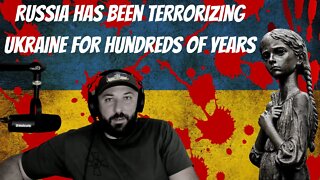 11:48
11:48
Roman Prokopchuk
1 year agoRussia Has Been Terrorizing Ukraine For Hundreds of Years - Trying To Destroy The Ukrainian People
198 -
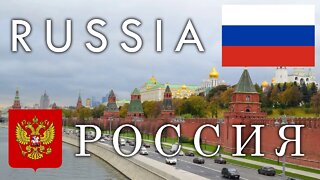 57:17
57:17
Geodiode - Exploring Our World Through Video
2 years ago $0.03 earnedRussia: History, Geography, Economy and Culture
250 -
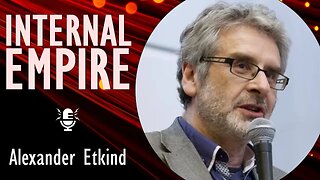 1:04:03
1:04:03
Silicon Curtain Podcast
1 year agoAlexander Etkind - Does Russia Know where its Borders Lie? Will the Imperial Obsession Destroy it?
77 -
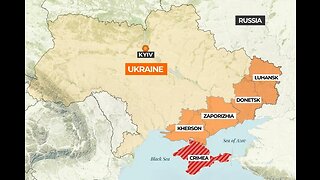 1:35:01
1:35:01
Crimelaw with Steven N. Gosney
1 year agoTrying to understand the Russia/Ukraine war
6.85K22 -
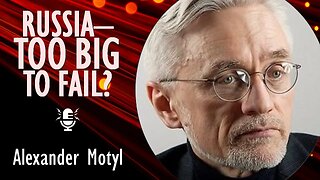 56:05
56:05
Silicon Curtain Podcast
7 months agoAlexander Motyl - Is the Idea that Russia is Too Big to Fail Holding Back Western Strategic Support?
29 -
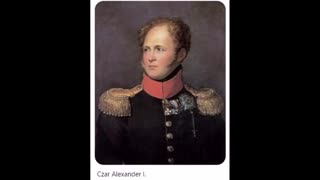 29:29
29:29
JehovahHaveMercy
11 months agoSECRET HISTORY OF RUSSIA 1 OF 3
71 -
 49:37
49:37
thebarricade
1 year ago2022 Wrap-up part 3: The power struggle within the Russian establishment, with Youri Smouter
9 -
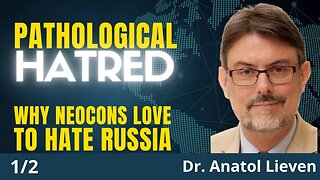 18:30
18:30
NeutralityStudies
9 months ago $0.02 earnedNeocon Hate For Russia Makes A European Settlement With Moscow Impossible Dr. Anatol Lieven (1/2)
77 -
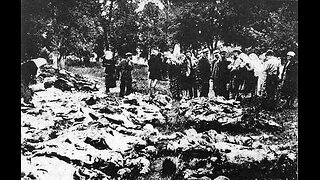 1:55:39
1:55:39
The Memory Hole
6 months agoThis Book Will Give You Nightmares - Stalin: The Court of the Red Tsar
9031 -
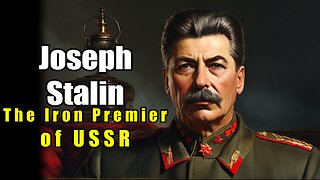 4:20
4:20
100 Historical Figures
5 months agoJoseph Stalin - The Iron Premier of USSR (1878 - 1953)
194